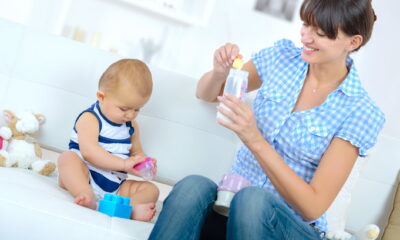

Environment
EU organic farming on the rise despite UK government’s GMOs sympathy
Areas farmed using organic agriculture in the European Union have grown by 13% every year between 2002 and 2011, thanks to rising consumer demand – despite some British MPs saying buying organic food is a waste of money.
Organic agriculture is growing by about 500,000 new hectares every year, the EU commissions has said, adding that the majority of holdings and land are located in France, Italy, Germany, Belgium and the UK.
The commission proposed new rules back in March to strengthen the sector.
Dacian Cioloş, the European commissioner for agriculture and rural development, said, “The Commission is looking for more and better organic farming in the EU by consolidating consumer confidence in organic products and removing obstacles to the development of organic agriculture.”
A recent study suggested that organic food is richer in antioxidants and has fewer chemicals, despite critics saying there is no evidence that conventionally grown food is less nutritious than organic products.
Liberal-Democrat Lord Taverne recently criticised the organic agriculture sector saying the government should stop subsiding farmers who decide to grow organic crops and start pouring funding into GMO research.
“It should stop spending more than £20 million a year on subsidising farmers to change to organic farming,” he said.
“One cup of coffee contains more carcinogens than you would ingest from a whole year’s consumption of pesticide residues in fruit and vegetables. Of course, that should not stop you drinking coffee.”
Tory peer Viscount Ridley added, “The health benefits of organic food, if they exist at all, are immeasurably small.”
Organic agriculture ensures that chemical pesticides or hormones are not employed, that high animal welfare standards are maintained and that the farming methods are respectful of the environment, the latter being often one of the main reasons why people buy organic.
The UK organic food and drink sector grew by 2.8% in 2013, totaling at £1.79 billion.
Photo: Matt Werner via flickr
Further reading:
Study: organic food has more antioxidants, less toxic metals and fewer pesticides
Sustainable spending: organic food and drink sales rose 2.8% in 2013
First sign of recovery in the organic food and drink sector
Consumers have ‘immense power’ to make food sustainable
The Guide to Sustainable Spending 2013


 Environment12 months ago
Environment12 months agoAre Polymer Banknotes: an Eco-Friendly Trend or a Groundswell?

 Features11 months ago
Features11 months agoEco-Friendly Cryptocurrencies: Sustainable Investment Choices

 Features12 months ago
Features12 months agoEco-Friendly Crypto Traders Must Find the Right Exchange

 Energy11 months ago
Energy11 months agoThe Growing Role of Solar Panels in Ireland’s Energy Future






























